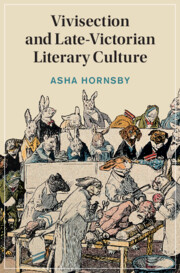289 results
Okinawan Coral Politics, Henoko Base Construction and a Japanese Political Strategy of Ignorance
-
- Journal:
- Asia-Pacific Journal / Volume 19 / Issue 24 / December 2021
- Published online by Cambridge University Press:
- 14 March 2025, e2
-
- Article
-
- You have access
- Open access
- Export citation
“It's Our Turn to Be Heard”: The Life and Legacy of Rapper-Activist ECD (1960-2018)
-
- Journal:
- Asia-Pacific Journal / Volume 16 / Issue 6 / March 2018
- Published online by Cambridge University Press:
- 14 March 2025, e3
-
- Article
-
- You have access
- Open access
- Export citation
Reading Hiroshima in the Age of Vietnam: John Hersey at the White House Festival of the Arts
-
- Journal:
- Asia-Pacific Journal / Volume 22 / Issue 3 / March 2024
- Published online by Cambridge University Press:
- 14 March 2025, e2
-
- Article
-
- You have access
- Open access
- Export citation
1 - The Historical Foundations of Community Commitment
-
- Book:
- We Choose You
- Published online:
- 06 February 2025
- Print publication:
- 13 February 2025, pp 23-45
-
- Chapter
- Export citation
The 2022 protests in Karakalpakstan. From lost autonomy to regional identity consolidation?
-
- Journal:
- Nationalities Papers , FirstView
- Published online by Cambridge University Press:
- 10 February 2025, pp. 1-20
-
- Article
-
- You have access
- Open access
- HTML
- Export citation
Introduction
-
- Book:
- Vivisection and Late-Victorian Literary Culture
- Published online:
- 30 January 2025
- Print publication:
- 06 February 2025, pp 1-20
-
- Chapter
- Export citation

Vivisection and Late-Victorian Literary Culture
-
- Published online:
- 30 January 2025
- Print publication:
- 06 February 2025
6 - Practising Democracy
- from II - 1819–85: Becoming Liberal and Global
-
- Book:
- Modern Britain, 1750 to the Present
- Published online:
- 14 January 2025
- Print publication:
- 30 January 2025, pp 190-224
-
- Chapter
- Export citation
What Determines the Duration of Protest Events? Evidence from Africa
-
- Journal:
- Government and Opposition , First View
- Published online by Cambridge University Press:
- 30 January 2025, pp. 1-27
-
- Article
-
- You have access
- Open access
- HTML
- Export citation
13 - The Neoliberal Revolution
- from V - 1976– : A New Liberalism?
-
- Book:
- Modern Britain, 1750 to the Present
- Published online:
- 14 January 2025
- Print publication:
- 30 January 2025, pp 483-525
-
- Chapter
- Export citation
1 - The Imperial State
- from I - 1750–1819: The Ends of the Ancien Régime
-
- Book:
- Modern Britain, 1750 to the Present
- Published online:
- 14 January 2025
- Print publication:
- 30 January 2025, pp 3-39
-
- Chapter
- Export citation
5 - The Politics of Public Space
-
- Book:
- Tokyo
- Published online:
- 06 February 2025
- Print publication:
- 30 January 2025, pp 90-108
-
- Chapter
- Export citation
El espacio urbano en la protesta social: Bogotá y Cali en las manifestaciones de 2021
-
- Journal:
- Latin American Research Review ,
- Published online by Cambridge University Press:
- 20 January 2025, pp. 1-23
-
- Article
-
- You have access
- Open access
- HTML
- Export citation
Unraveling the Cycle of Protest in Turkey’s Gezi Park
-
- Journal:
- Review of Middle East Studies , First View
- Published online by Cambridge University Press:
- 13 January 2025, pp. 1-16
-
- Article
- Export citation
4 - Promising Dubai in Sohar
-
- Book:
- Millennial Dreams in Oil Economies
- Published online:
- 02 January 2025
- Print publication:
- 09 January 2025, pp 146-202
-
- Chapter
- Export citation
Chapter 1 - Jack Cade in a Time of Protest
-
- Book:
- Shakespeare's Political Spirit
- Published online:
- 12 December 2024
- Print publication:
- 19 December 2024, pp 38-76
-
- Chapter
-
- You have access
- HTML
- Export citation
8 - Movement Lawyering
- from II - What Legal Design Can Do
-
-
- Book:
- Legal Design
- Published online:
- 19 December 2024
- Print publication:
- 19 December 2024, pp 118-133
-
- Chapter
- Export citation
8 - Respectable Citizens in Uncertain Environments
-
- Book:
- Respectable Muslims
- Published online:
- 18 December 2024
- Print publication:
- 19 December 2024, pp 209-236
-
- Chapter
- Export citation
7 - How Jordan’s Blame Games Influence Governance
-
- Book:
- The King Can Do No Wrong
- Published online:
- 21 November 2024
- Print publication:
- 28 November 2024, pp 213-235
-
- Chapter
- Export citation
1 - Introduction
-
- Book:
- The King Can Do No Wrong
- Published online:
- 21 November 2024
- Print publication:
- 28 November 2024, pp 1-38
-
- Chapter
- Export citation


